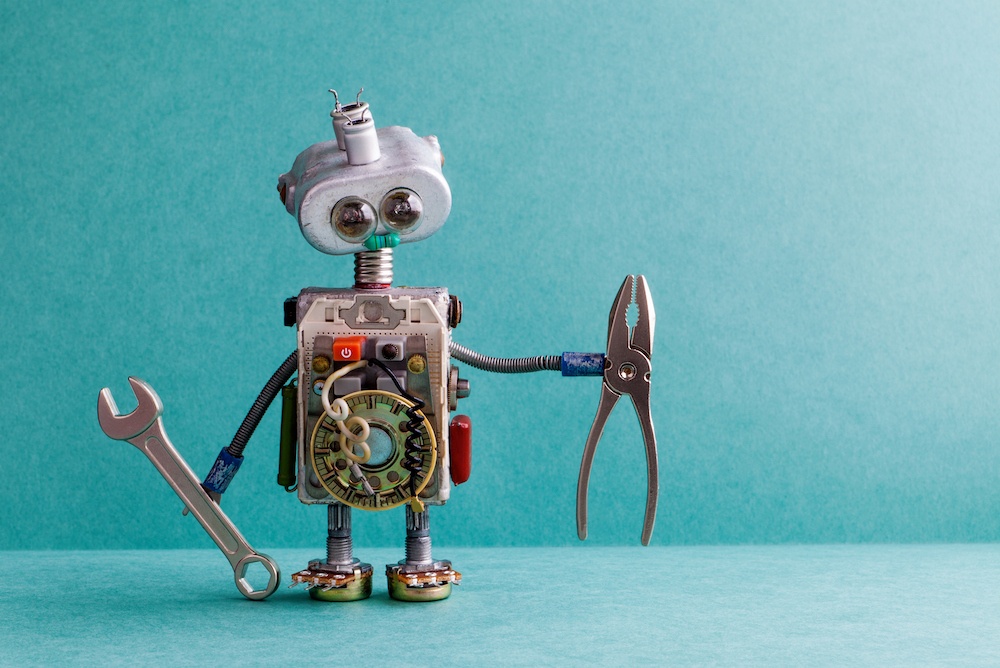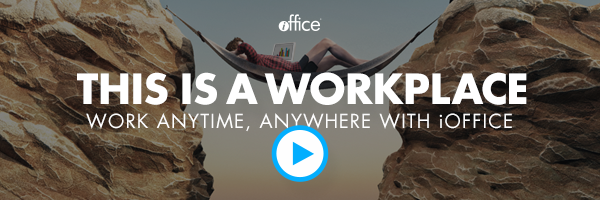Who Let the Bots Out? Here’s How AI Could Impact Your Workplace


Chances are, you’re probably already using a bot. Ever heard of Apple’s Siri, Facebook Messenger or Amazon’s Alexa? Yep, those are all run by bots. Even if bots aren’t in your life just yet, they’re about to be. Artificial intelligence (AI) is estimated to be a $5 billion market by 2020. And of 200 companies surveyed, 75% said AI will be actively implemented in their workplace within the next three years. But don’t be scared! Bots are here to help. They’re going to make your job and your workplace even better.
What is a Bot?
We’re glad you asked. A “bot” is a generalized term shortened from internet robot, used to describe any type of software that automates a task. The word “robot” actually stems from the word robata, which means “work”.
The History of AI
AI can be traced way back. All the way to 1308 in fact, when Catalan poet and theologian Ramon Llull made several logical machines devoted to the production of knowledge. Llull described his machines as “mechanical entities that could combine basic and undeniable truths…produced by the machine by mechanical meanings, to produce all the possible knowledge.” Many theorists and scientists wrote about the concept of sources aside from the human brain being able to make intelligent decisions. While WWII brought up discussions of neuroscience and computing – up until 1949 computers lacked a key prerequisite for intelligence: they couldn’t store commands, only execute them.
That all changed between 1957 to 1974, when AI flourished. Computers could begin to store information and became faster, cheaper, and more accessible to more people. Also fueling the AI conversation was a series published by writer Issac Asmiov in 1950, called I Robot.
In 2002 another iRobot came on the scene as the first in-home bot, an autonomous vacuum cleaner called Roomba. The popularity of this product helped to spur a new era of autonomous robots, focused on completing specific tasks to eliminate them from the responsibility of humans.
We’re all familiar with the next chapter in the story. Google began creating the first self-driving car in 2009 and with the release of Siri in 2011, it was clear artificial intelligence was just getting started.
Will Bots Impact Your Workplace?
“The goal of bots and apps in the workplace is to bring all the tools people use into the conversations they’re already having, in a more natural, friendly way.” – Buster Benson, Platform Product Lead, Slack
Bots Might Schedule Meetings
Even if you already use a room reservation software like OpenSpace, having an automated bot within this platform could help you get even more from the system you’re using. By scanning attendee schedules and syncing calendars, bots can eliminate issues that come with finding a time when your entire team can meet up.
Bots Simplify HR
Instead of dedicating an entire department made up of staff who manage requests for time off, changes of address, payroll adjustments and benefits inquiries, a bot could help handle this for you. When time-consuming, tedious tasks are automated, HR professionals can turn their time to more valuable responsibilities such as training, employee engagement or conflict resolution.
AI Assists Remote Workers
As remote work continues to soar in popularity, bots may find themselves useful to those not working directly next to their team. For example, bots can help remote users to see all the projects another user is working on, or projects that are being developed in a different department. The bot might suggest related projects or find the document a user needs based on their activity with certain employees in their department.
Bots Help Increase Employee Creativity
Creativity is one of the most valued characteristics in an employee. The ability to problem solve and think critically, sometimes outside of the box, is a skill that helps businesses move forward. However, if people are bogged down with repetitive, menial tasks – there is little room for exploration of new ideas and constructive failure.
While the hysteria of bots taking our jobs can be threatening, it’s important to consider the positives this type of artificial intelligence can bring to the work environment. If we’re relieved from the burden of completing trivial tasks, we’re given more time to fill our workday with meaningful responsibilities, those which could help grow our businesses and fulfill needs of our teams and departments. If anything, AI is giving humans the opportunity to do what we do best, think creatively and collectively, free from distractions.
